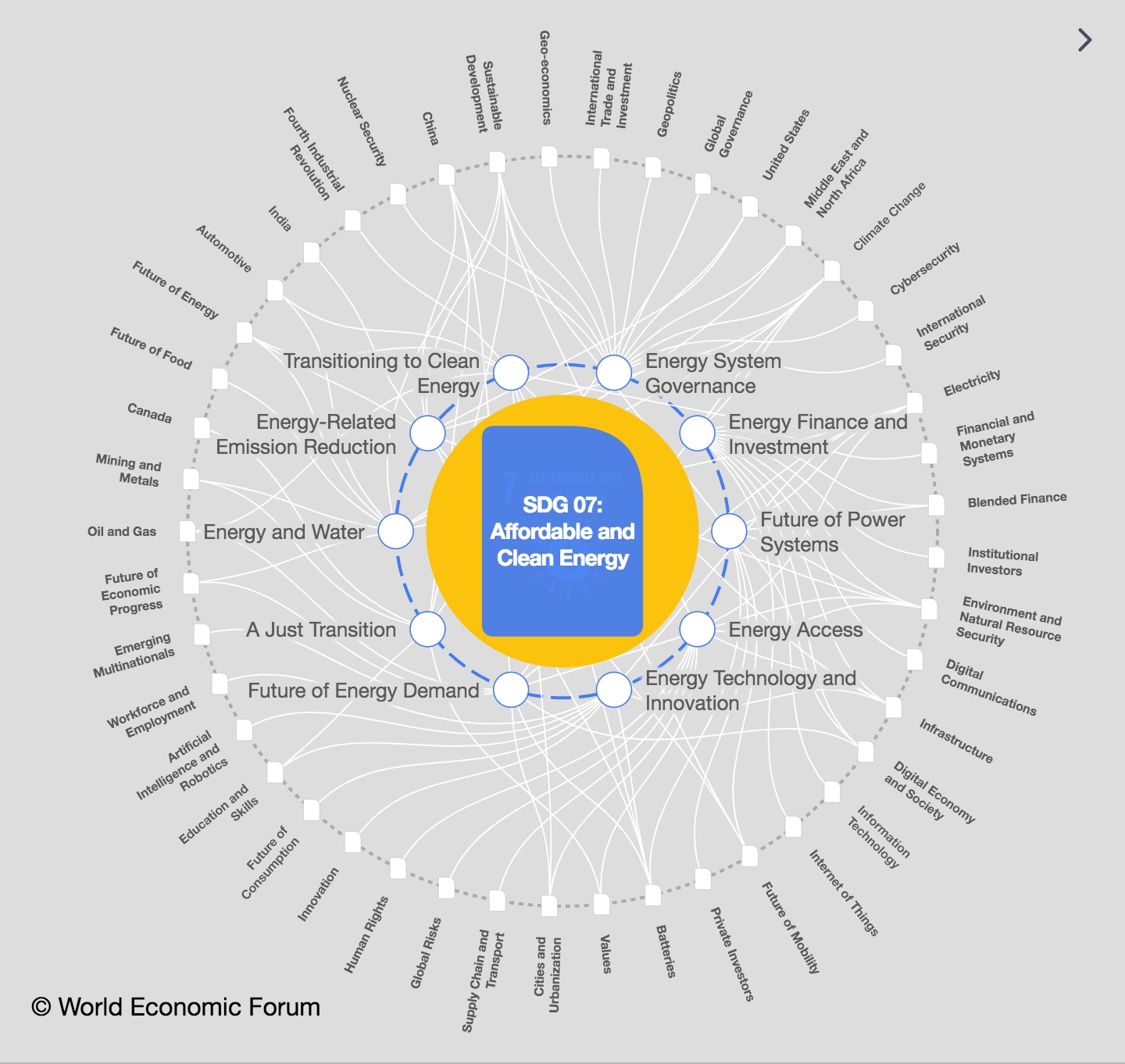EU reaches deal on higher renewable energy share, oil prices jump, and the other energy stories you need to read this week

The EU has reached a deal on a higher renewable energy share. Image: REUTERS/Toby Melville
Roberto Bocca
Head of Centre for Energy and Materials; Member of the Executive Committee, World Economic Forum
Get involved with our crowdsourced digital platform to deliver impact at scale
Stay up to date:
SDG 07: Affordable and Clean Energy
Listen to the article
- This weekly round-up brings you the latest developments in the global energy sector.
- Top energy news: EU reaches deal on higher renewable energy share by 2030; Shipping industry decarbonization momentum grows; and Canada sets out clean tech investment strategy.
- For more on the World Economic Forum’s work in the energy space, visit the Shaping the Future of Energy, Materials and Infrastructure Platform.
1. EU reaches deal on higher renewable energy share by 2030
The European Union reached a provisional deal on 30 March on higher renewable energy targets, an important pillar of the bloc's plans to fight climate change and end dependence on fossil fuels imported from Russia.
Negotiators of the European Parliament and the Council, representing EU members, agreed that by 2030, the 27-country EU would commit to sourcing 42.5% of its energy from renewable sources like wind and solar, with a potential top-up to 45%.
The EU's current 2030 target is for a 32% renewable energy share.
The EU got 22% of its energy from renewable sources in 2021, but the level varied significantly between countries. Sweden leads the 27 EU countries with its 63% renewable energy share, while in Luxembourg, Malta, the Netherlands and Ireland, renewable sources make up less than 13% of total energy use.
A rapid shift to renewable energy is crucial if the EU is to meet its climate change goals, including a legally binding aim to cut net greenhouse gas emissions by 55% by 2030, from 1990 levels.
2. Oil price jumps after surprise production cuts
Oil prices surged after the OPEC+ group of producers announced a surprise cut in production. Benchmark Brent crude oil was up 6% to $85 a barrel following the decision.
The move brings the total volume of cuts by OPEC+ to 3.66 million barrels per day, including a 2 million barrel cut last October, according to Reuters calculations. This is equal to about 3.7% of global demand.
Fears of a fresh banking crisis have been cited as one reason for the cuts. The turmoil in the banking sector has led investors to sell out of risk assets, such as commodities, as a global recession could lead to lower oil prices. This sell-off pushed oil prices down to around $70 per barrel from near an all-time high of $139 in March 2022.
OPEC has described the cuts as precautionary, and some sector analysts say a weakening economy and rising oil stockpiles supported the decision. "OPEC is taking pre-emptive steps in case of any possible demand reduction," Amrita Sen of Energy Aspects told Reuters.
But the US government says it sees the move as unwise. "We don't think cuts are advisable at this moment given market uncertainty – and we've made that clear," a spokesperson for the National Security Council said.
3. News in brief: More energy stories from around the world
Canada's 2023 budget took a big step toward luring more investment in clean technology to build a low-carbon economy, according to analysts. But gaps must still be filled to make the country more competitive with the US since it passed over $1 trillion in incentives for clean energy investments in the Inflation Reduction Act (IRA) last year.
A record 680 gigawatts (GW) of wind energy capacity is expected to be installed around the world by 2027, adding to the 907 GW of installed capacity as of 2022. But policymakers need to ensure supply chain bottlenecks do not slow growth to avoid missing climate targets, according to the Global Wind Energy Council (GWEC).
Financial hurdles are rising for US liquefied natural gas (LNG) project developers aiming to get their proposed export terminals off the ground as investors become more demanding.
How is the World Economic Forum facilitating the transition to clean energy?
Sustainable lithium-ion battery recycling company Aqua Metals has recovered high-purity nickel from shredded end-of-life batteries, Energy Monitor reports. Nickel is proving to be an essential metal in decarbonization and makes up a significant cost of electric vehicles and energy storage systems. Rising nickel costs could be alleviated in part by metal recycling.
North Africa’s energy infrastructure investment is ramping up, as global oil and gas firms Halliburton, Chevron and Eni are increasing their presence in the region with growing demand from Europe, The Wall Street Journal reports.
4. More on energy from Agenda
Oxford University and Oxford Sustainable Finance Group recently published a report that tracks the cost of capital across the global energy system between 2020-2021. It highlights the need to accelerate investment in low-carbon energy to meet climate targets.
Fossil fuels still make up more than 80 percent of the world’s energy mix. But to limit the global temperature rise to 1.5 degrees Celsius above pre-industrial levels, we can’t develop any more new fossil fuel reserves beyond what was planned as of 2021. Here is everything you need to know about fossil fuels.
To learn more about the work of the Energy, Materials, Infrastructure Platform, contact Ella Yutong Lin: ellayutong.lin@weforum.org
Don't miss any update on this topic
Create a free account and access your personalized content collection with our latest publications and analyses.
License and Republishing
World Economic Forum articles may be republished in accordance with the Creative Commons Attribution-NonCommercial-NoDerivatives 4.0 International Public License, and in accordance with our Terms of Use.
The views expressed in this article are those of the author alone and not the World Economic Forum.
The Agenda Weekly
A weekly update of the most important issues driving the global agenda
You can unsubscribe at any time using the link in our emails. For more details, review our privacy policy.
More on Energy TransitionSee all
Nils Aldag and Christopher Frey
May 1, 2024
Gayle Markovitz
April 29, 2024
Reese Epper, Brad Handler and Morgan Bazilian
April 29, 2024
Hidemitsu Kibe
April 29, 2024
David Victor and Joisa Saraiva
April 29, 2024
Spencer Feingold
April 28, 2024








